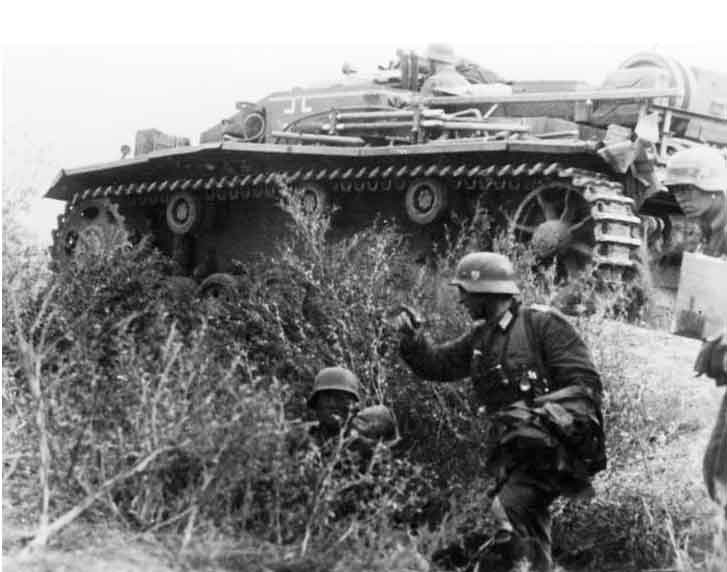AUGUST 27th 1942 Germans Reach Stalingrad

Germans Advancing on Stalingrad
German troops reached the Russian city of Stalingrad, on the Volga, and laid siege to it. German troops advanced on Stalingrad and broke through Russian lines, but did not succeed in taking the city. The Soviets fought block for block building for building and thus any advantage that the Germans had in airpower and even in armor was lost. Hitler would allow no withdrawal from Stalingrad, and the Russian troops gradually wore down the Germans..
The Soviet Union anticipated that the primary German summer offensive would target Moscow. However, the Germans devised a Southern offensive with the objective of securing the oil field in the Baku region. On June 28, 1942, the German offensive commenced. The city of Voronezh was captured on July 5th, and by the end of July, the Germans had crossed the Don River.
The German forces encountered significant resistance west of Kalach, which they eventually overcame. By July, it became evident that the German forces were advancing towards Stalingrad. Lieutenant General Vasily Chuikov was appointed commander of the Soviet defenses. The battle for Stalingrad commenced north of the city, where the Soviets deployed hundreds of thousands of troops. The Germans emerged victorious, resulting in a Soviet loss of 200,000 troops while delaying the German advance.
On August 1st, the German launched a massive air assault on the city. Simultaneously, the Soviets rushed as many troops as possible to the city. However, the Germans controlled the skies, making all resupply efforts costly. The Soviets attempted a counterattack, which failed, and by September 12th, the Germans had breached the outer defenses and were poised to assault the city. The Germans attempted to swiftly capture the city, but the Soviets proved to be more formidable than anticipated and fought with unwavering determination. The Germans had developed a military strategy that incorporated air, artillery, and ground assault, but this approach proved ineffective when the Soviets fought for every floor of every building. Gradually, the German assault was halted.
 >
>